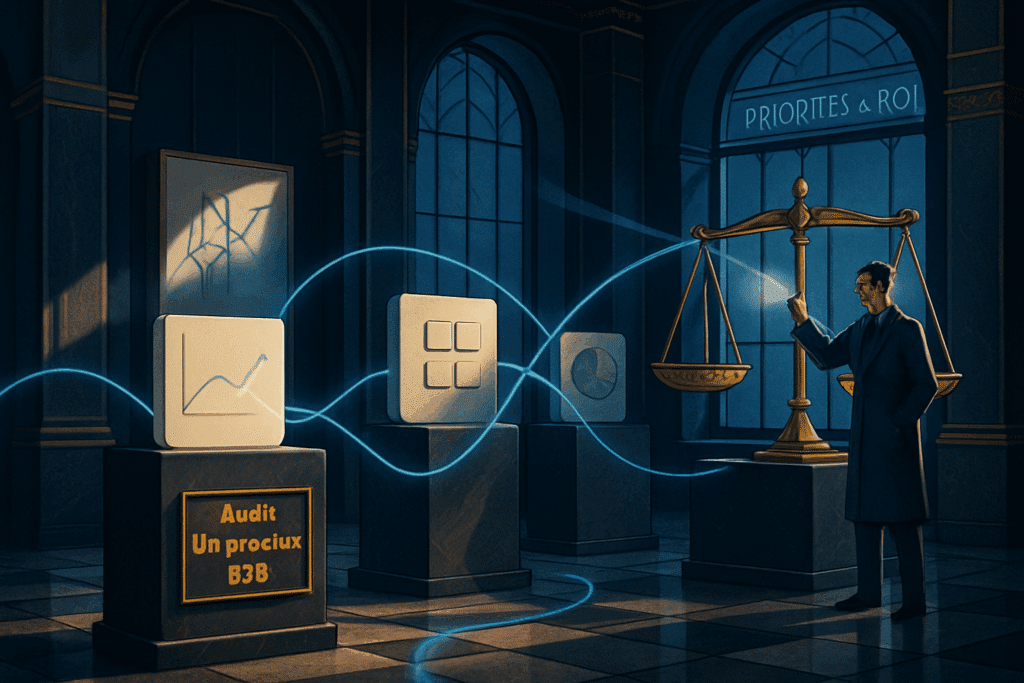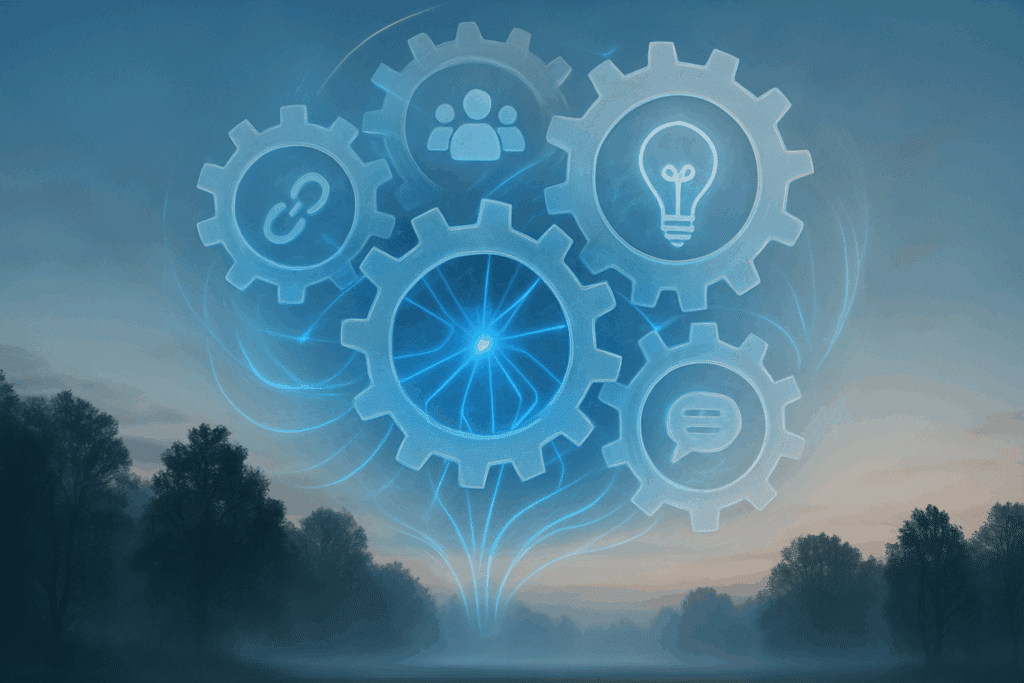Automating marketing workflows with artificial intelligence
Marketing workflow automation with artificial intelligence refers to the use of advanced technologies such as machine learning, automatic natural language processing and predictive analytics to optimize and automate marketing processes. This technological evolution is essential for improving the effectiveness of campaigns and the precision of marketing actions.
- Artificial intelligence technologies can automate repetitive tasks and optimize marketing processes.
- Artificial intelligence promotes personalized content generation and intelligent lead engagement.
- Predictive analytics improve understanding of customer behavior and dynamic segmentation.
- Specialized platforms facilitate the integration of AI into marketing workflows for complete automation.
- The growing adoption of AI in marketing is preparing companies for an accelerated digital transformation by 2025.
Introduction to marketing workflow automation with AI
Marketing workflow automation with artificial intelligence is now a major component of modern marketing campaign management. It enables organizations to streamline their processes, while delivering personalized interactions on a massive scale. At a time when competition and market complexity are intensifying, adopting this approach is becoming a key factor in boosting campaign efficiency and improving the accuracy of actions.
Companies of all sizes benefit from these solutions, from multi-channel campaign management to dynamic audience segmentation. This automation is part of both IT and marketing strategy, responding to the need to make better use of customer data and continuously optimize results.
How AI marketing automation works and technologies
Marketing workflow automation with artificial intelligence uses cutting-edge technologies such as machine learning, natural language processing (NLP) and predictive analytics. These tools enable repetitive tasks to be automated and decisions to be made based on real-time data. These technologies enable efficient processing of the large volumes of data generated by customer interactions, optimizing marketing actions.
Machine learning, for example, identifies behavioral trends in customer data, enabling messages or segmentation to be adapted automatically. Natural language processing is used to analyze and generate relevant content, respond to customers automatically, or automate exchanges on social networks. Predictive analysis anticipates buying behavior, facilitating proactive engagement with prospects and customers.
Practical applications and benefits of AI-powered automation
Artificial intelligence offers a variety of concrete applications in marketing workflows, including:
Customized content generation
AI agents are capable of automatically producing tailored content such as e-mail templates, social networking posts or product descriptions. This saves time and frees up marketing teams for more complex strategic tasks[1][9].
Infant and lead engagement
AI automates lead follow-up via large-scale personalized communications, improves responses to customer queries, and enriches the customer experience, increasing conversion rates[1][5].
Predictive analytics and insights
AI analysis of customer data enables us to anticipate future behavior, optimize campaigns in real time and refine lead generation strategies, boosting overall performance[1][2].
Intelligent customer segmentation
Thanks to AI, customer segmentation becomes dynamic: it integrates behavioral, purchase history and intent signals, greatly improving the relevance of targeted campaigns[3][4].
Complete automation of marketing processes
Marketing workflows can be automated from start to finish, encompassing lead capture, personalized campaign implementation and content lifecycle management, reducing human error and accelerating action cycles[5][3].
Tools and platforms for marketing automation with AI
To leverage artificial intelligence in marketing automation, several platforms offer dedicated solutions. Among them, tools such as ReadyLogic, GWI Spark and Make facilitate the creation and management of automated workflows incorporating AI[3][4][11].
These tools make it possible to coordinate complex processes while ensuring accurate performance monitoring. They also offer integrations with different customer databases, CRMs and communication channels, guaranteeing optimal exploitation of artificial intelligence to automate campaign management and personalize interactions.
Impact and prospects of AI in marketing workflows
Recent reports indicate that the majority of companies plan to integrate artificial intelligence into their marketing workflows by 2025, accelerating their digital transformation[12]. This growing adoption underlines an ongoing revolution in the way marketing campaigns are conceived.
Artificial intelligence relieves marketing teams of repetitive tasks, enabling large-scale personalization without sacrificing accuracy. It also improves lead management and the continuous monitoring of campaign performance, contributing directly to greater profitability and competitiveness in the marketplace[8][9].
However, these advances require careful consideration of issues linked to data protection, algorithm transparency, and the quality of the data used to guarantee reliable results that comply with ethical and regulatory expectations.
Summary and call to action
Marketing workflow automation with artificial intelligence is transforming the management of marketing campaigns for good. By combining machine learning, natural language processing and predictive analysis, these solutions significantly improve the efficiency and accuracy of marketing actions. Applications range from personalized content generation to dynamic customer segmentation and continuous campaign optimization.
Platforms specialized in AI integration facilitate their adoption, as companies anticipate a major acceleration of this digital transformation by 2025. This evolution is crucial if we are to remain competitive in an ever-changing marketing environment.
To find out more about these topics and discover how to effectively integrate artificial intelligence into marketing workflows, it’s a strategic step to consult specialized resources and consider professional support.
By investing in marketing automation with AI, companies optimize their performance while preparing for future digital marketing challenges.
















